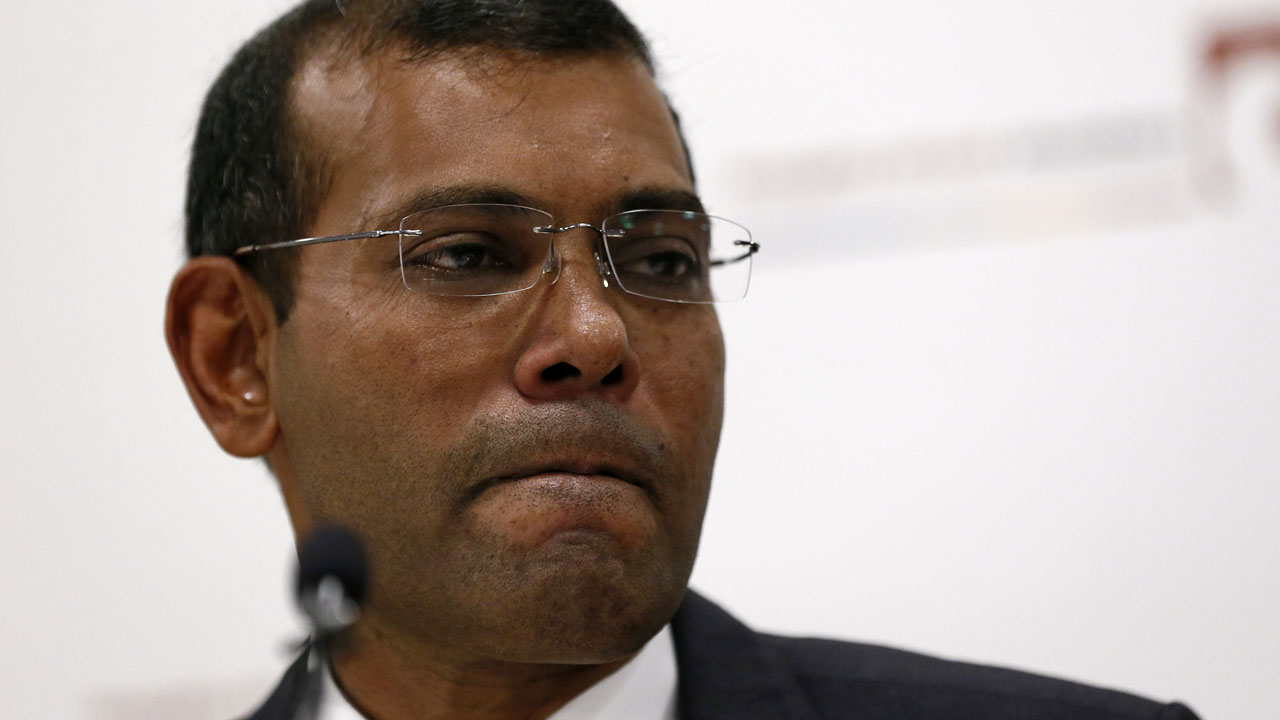
The corals might be doomed, his country is still at risk of being swallowed by rising seas and he has recently survived an assassination attempt, but former Maldives president Mohamed Nasheed is feeling optimistic.
Nasheed, who is representing dozens of the world’s most climate vulnerable countries, is at COP26 to call on world leaders to make good on their promises to help nations on the front line of global heating.
A veteran of climate diplomacy, Nasheed made headlines in 2009 when he persuaded his cabinet to don scuba gear and hold an aquatic meeting among the coral reefs that ring his Indian Ocean archipelago.
“Ten years later on, where are we?,” he told AFP.
“I think we’ve moved a long, long, long way forward.”
Though some countries still need to scale up their climate ambitions, Nasheed said that now he dares to believe that the Paris agreement goal of limiting global warming to 1.5 degrees Celsius above preindustrial levels is possible.
“I believe now people have understood the gravity of the issue,” he said, referring to the onslaught of climate change-fueled weather disasters this year, from record-shattering heatwaves in North America to devastating floods in Europe.
“It is an election issue now, that is why world leaders have joined the rhetoric.”
A particular sore point at the Glasgow gathering is the failure of rich nations to honour their pledge — first made in 2009 — to provide $100 billion a year by 2020 for countries facing the worst climate impacts.
Last week, they laid out a plan for hitting the target only in 2023 — although United States climate envoy John Kerry this week said funding the funding might reach the target next year.
The Climate Vulnerable Forum that Nasheed represents is calling on richer nations to meet the $100 billion target.
It also wants the debts of vulnerable nations to be restructured so that part of their repayments can be repurposed into spending on projects to help soften the blow of climate change.
Nasheed had a message for world leaders: “think about your children and your children’s children”.
“In the Maldives, we were the first generation to see the reef, because we were the first generation to be able to have goggles and masks and equipment and go diving and snorkelling,” he told AFP.
“Sadly, we are the first generation to see the reef die as well. We must make sure we rehabilitate the reef and hand over the reef in the pristine, colourful manner that we saw it.”
‘Nature as infrastructure’
Oceans absorb more than 90 percent of the excess heat from greenhouse gas emissions, pushing many species of corals past their limits of tolerance.
The UN’s climate science advisory panel, the IPCC, projects that global warming of 1.5C will see 70 to 90 percent of all corals disappear.
But Nasheed refuses to give up, calling for innovative solutions to climate challenges.
“We want to find resilient coral,” he said.
“We want to find a sand grain that will hold water and not have mudslides. We want perhaps a tree that doesn’t burn.”
Nasheed said the aim was to “use nature as infrastructure”, but that these adaptation projects need money.
‘It’s not just us’
The delays in funding from wealthy nations have exacerbated tensions between richer countries, largely responsible for global warming, and those poorer countries suffering most from its effects.
“You did not invent the internal combustion engine to murder me. But finally, this is where it is going to. And would you compensate for that?” Nasheed said.
But he added that the past could not be used as an excuse to continue to pollute.
“It’s like saying that the West has brought us to the brink and the new big emitting countries have a right to push us off the cliff,” he said.
Ultimately, “we want to survive and we want you to survive as well,” he said.
“It’s not just us now. When we go down, the whole ship goes down.”
Nasheed, currently the speaker of parliament in the Maldives, was critically wounded in a May assassination attempt outside his home in the capital Male.
He said it had made him believe “we are here for a big purpose”.
“We can’t be pessimistic, we can’t lose hope. If we lose hope, where do we go? What do we do?”



